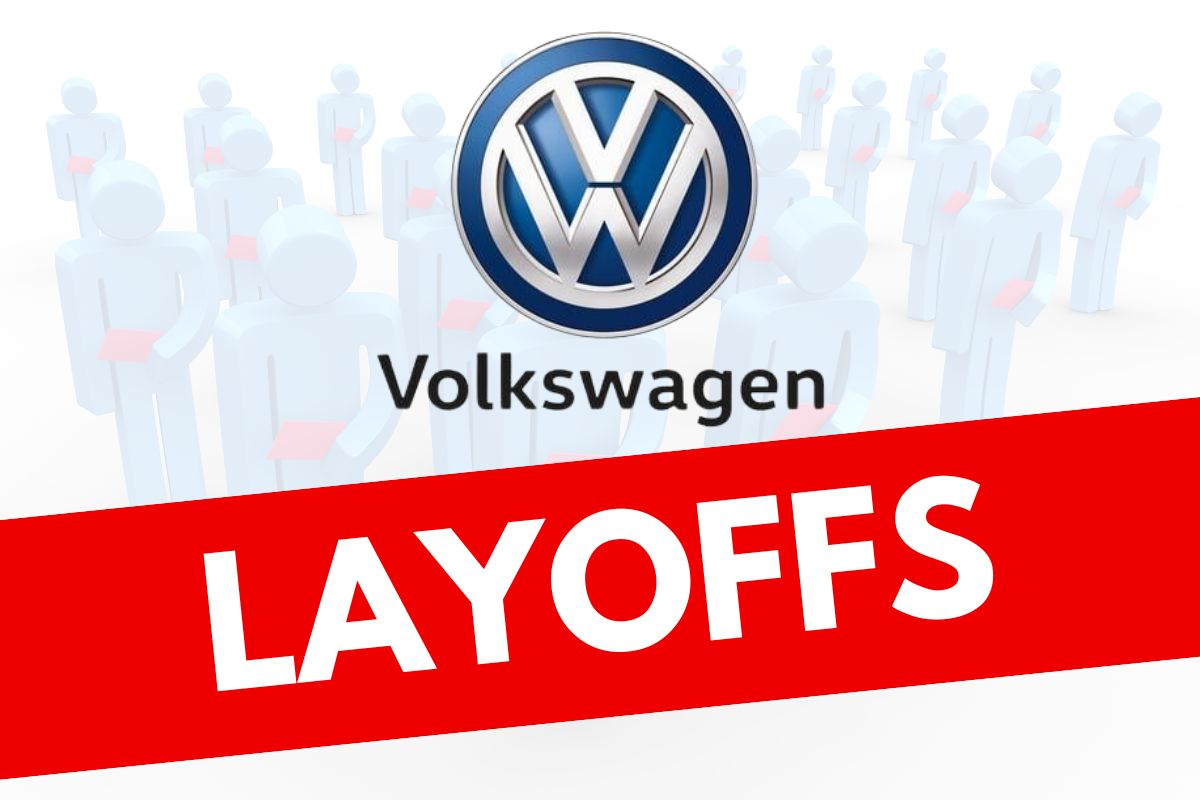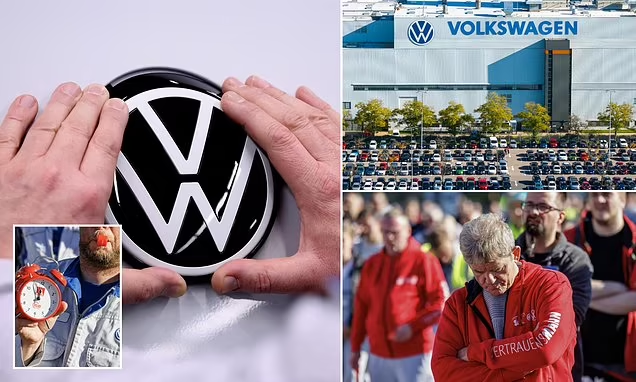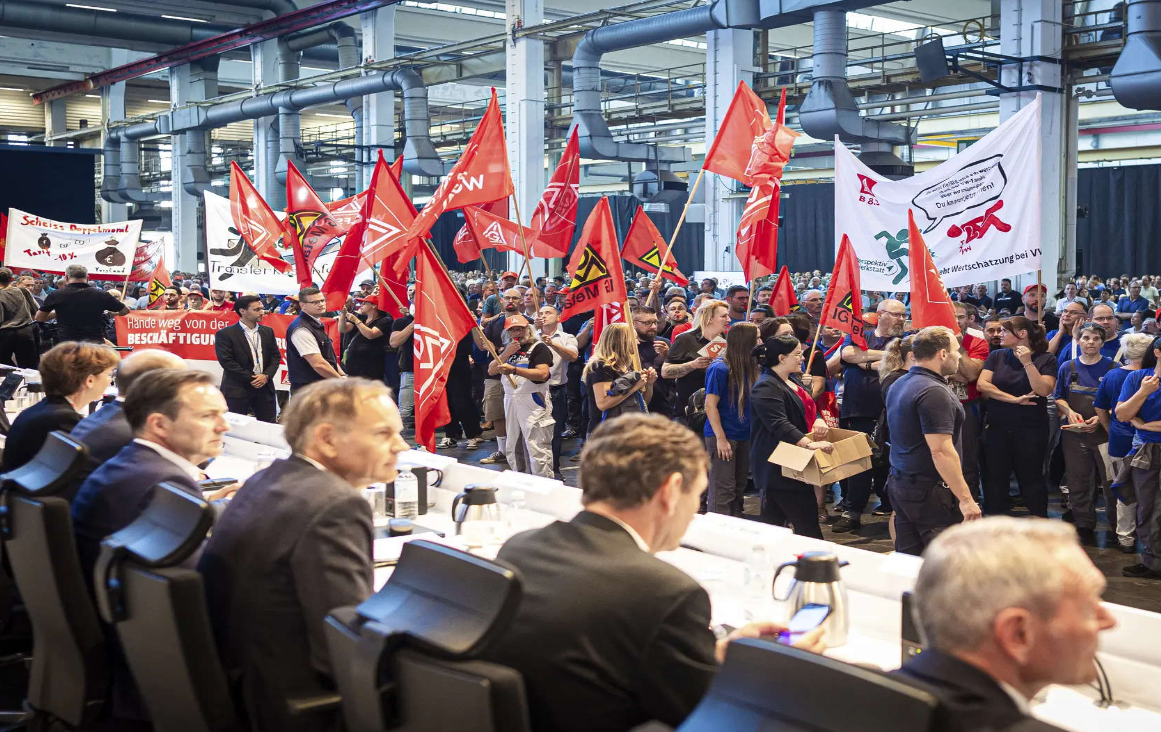Volkswagen, Germany’s iconic automaker, is preparing for a substantial overhaul, one that will profoundly impact its workforce and industrial landscape. The company is set to close three manufacturing plants in Germany, a decision that could lead to tens of thousands of layoffs. The plans also include a 10% reduction in monthly salaries for remaining employees over the next two years, along with the elimination of various allowances and bonuses. These measures come as Volkswagen grapples with economic pressures, competition, and fluctuating demand, aiming to cut costs and maintain its edge in the auto industry.
Volkswagen’s Strategic Shift: Plant Closures and Workforce Reductions
As Europe’s largest automaker, Volkswagen’s move to shutter production facilities within its home country marks an unprecedented shift, underscoring the intensity of the challenges facing the company. With over 300,000 employees in Germany alone, Volkswagen’s planned cutbacks could be a blow to one of Germany’s most significant employment sectors. While management has not specified which plants will close or exactly how many jobs will be lost, the three-plant closure indicates a strategic retraction in production capacity within Germany—a decision that has stirred unrest among workers and unions.
In a statement addressing the workforce, Volkswagen’s works council head, Daniela Cavallo, voiced strong concerns, stating, “Management is absolutely serious about all this. This is not saber-rattling in the collective bargaining round.” She emphasized the drastic nature of the plan, adding that it appears to signal “the start of a sell-off in Germany.” Cavallo’s comments reflect a widening rift between Volkswagen’s leadership and its employees, who are alarmed by the prospect of mass layoffs in a sector long seen as one of Germany’s industrial strongholds.
Salary Cuts and Benefits Reductions: Volkswagen Tightens Its Belt
In addition to job cuts, Volkswagen plans a 10% reduction in monthly wages for all remaining employees through 2025 and 2026. This financial tightening also involves the discontinuation of allowances and bonuses, stripping away perks that have long been part of Volkswagen’s compensation package. As the company faces rising production costs and fierce competition, these salary reductions are intended to safeguard its financial stability and competitiveness. Yet, these plans have met with considerable pushback, with union leaders and employees alike decrying the drastic cuts that threaten to erode workforce morale and loyalty.

The automaker’s decision to impose such sweeping changes points to a need for greater adaptability in a market where demand is increasingly unpredictable. However, the extensive restructuring has raised concerns that Volkswagen may lose valuable talent and worker goodwill, both of which are crucial to maintaining quality and innovation in production. The decision to reduce benefits adds another layer of strain, as workers question the long-term vision and commitment of Volkswagen’s management to preserving jobs in Germany.
Calls for Government Intervention: Ensuring the Future of German Industry
The escalating conflict between Volkswagen’s management and workforce has prompted calls for action from the German government. In her address, Cavallo urged Berlin to devise a comprehensive “master plan” for German industry, cautioning that without decisive intervention, the future of domestic manufacturing could be at risk. With Germany’s economy grappling with slow growth and high inflation, Volkswagen’s restructuring is seen as both a symptom and a signal of broader economic weaknesses. As one of Germany’s industrial giants reconsiders its operational footprint within the country, the government faces mounting pressure to safeguard domestic industry and prevent further erosion of its manufacturing base.
The stakes are high, not only for Volkswagen but for Germany’s economy as a whole. The auto industry is a cornerstone of Germany’s economic identity, employing millions and contributing significantly to the country’s GDP. Volkswagen’s plans highlight the vulnerability of traditional industries in an era of globalization and technological change, underscoring the need for proactive measures to support and modernize Germany’s industrial sector.
Navigating Economic Pressures and Market Dynamics: Volkswagen’s Next Steps
Volkswagen’s strategic shift reflects the broader pressures that automakers face in an evolving global landscape. Slowing demand in Europe, coupled with the high cost of transitioning to electric vehicles, has placed immense financial strain on the industry. Volkswagen’s restructuring aims to preserve its long-term viability by focusing resources on its most profitable operations, even if it means downsizing in Germany, where labor costs are comparatively high. Yet, the path forward remains uncertain, as the automaker attempts to balance cost-cutting measures with its commitment to innovation and sustainability.
The ramifications of Volkswagen’s decision extend far beyond the company itself, touching on issues of labor rights, industrial policy, and national economic resilience. As Volkswagen’s story unfolds, it serves as a stark reminder of the complexities facing legacy industries in an age of rapid change and heightened competition. The outcome of this restructuring will likely set a precedent for how other companies navigate similar challenges, both within Germany and on the global stage.
Volkswagen’s restructuring efforts, while aimed at stabilizing the company’s future, have sparked a national conversation about the need for strategic intervention to secure Germany’s industrial future. The stakes are clear: without adaptive strategies and robust support, even the strongest industrial giants can falter, leaving ripple effects that extend well beyond the corporate sphere.


